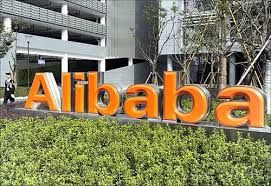 “Soon this entire street will be called the Snapdeal street.
“Soon this entire street will be called the Snapdeal street.
"We already have about six buildings here,” Rohit Bansal, chief operation officer and co-founder of Snapdeal, recently said in jest as he pointed at a row of buildings used by the e-commerce company at Okhla, a prime office location in south Delhi.
That perhaps shows how the company, constantly in the news over the past few weeks for various reasons including getting into automobiles and real estate, wants to grow.
The market is abuzz with the talk of Snapdeal raising up to $600 million (Rs 3,600 crore) with new investors such as Japan’s Softbank and Japanese e-commerce company Rakuten.
It already has two key investors of Chinese e-commerce major Alibaba -- Singapore-based Temasek, and Hong Kong’s Myriad -- in its kitty.
Both led the earlier round of fund-raising in May when Snapdeal got investments worth $100 million (Rs 600 crore).
Snapdeal, which has always maintained it is modelled on Taobao, an internet shopping site operated by Alibaba, refused to comment on any “speculation” on funding issues.
In fact, the Okhla office of Snapdeal looked like a job fair venue when this correspondent visited the headquarters.
“From the current headcount of about 1,500 people, we will expand to more than 2,600 people in the next one or two years,” said Bansal.
To beat the competition from the likes of Amazon and Flipkart, which have a war chest of about a billion dollars, Snapdeal is looking to expand strategically. With about 40 fulfilment centres in 15 cities, the company will expand to 30 cities in the next nine months.
Snapdeal’s fulfilment centres are smaller in size and are used as transit centres unlike the ones of Amazon and Flipkart, which hold inventory for their sellers.
It plans to have 500,000 square feet of space in the next 12 months, and is not so keen on the idea of complete mechanisation and robotics at fulfilment centres in India, preferring to use human labour partially at least with its cheaper cost.
Acquisitions in payments, big data, and technology are among the other things that Snapdeal is upbeat about. Same-day and next-day delivery will be further expanded to 15 cities this year from the current availability only in the key metro cities.
While Flipkart and Amazon have taken the path of inventory intensive tactics such as exclusive launches and private labels, while simultaneously expanding their seller base, Snapdeal has stayed true to its marketplace strategy, say experts.
Snapdeal is like a local flea market where everyone can come and sell their stuff and the carpet is provided by Snapdeal like its technology platform, payment and delivery mechanism.
The diversification into categories such as homes, gourmet, automobiles and other off-beat categories such as DNA testing indicates it might go the Alibaba way in India, according to a competitor.
“’We are glad to have partnered Mahindra & Mahindra to launch four-wheeler automobile (SUV Scorpio) on Snapodeal,” said Bansal after the latest category entry on Thursday. No other e-commerce player sells automobiles.
Recently, the company attracted investment from Ratan Tata in his personal capacity.
If the company successfully raises $600 million in one go, it would be its largest funding round ever. It has so far raised $340 million in five rounds of funding and is valued at $1.2 billion.
Even so, this would fall short of the $1.7-billion fund raised by Flipkart so far. Amazon announced investing $2 billion in India, a day after Flipkart raised $1 billion in one round earlier this year.
According to industry insiders, what distinguishes Snapdeal is not how much funds it has raised, but how well it capitalises on its marketplace model. Marketplace, a format first used by Snapdeal in India and then followed by others, including Flipkart and Amazon, is about hosting retailers or sellers on its website.
Image: A security guard walks past a logo of Alibaba (China) Technology Co. Ltd at its headquarters on the outskirts of Hangzhou. Photographs: Lang Lang/Reuters










 © 2025
© 2025